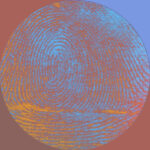Visualizing
the Virus
COVID-19 and Wildlife
Marginalised Perspectives and Neglected Trends
This virtual seminar series brings together researchers from around the world to discuss marginalised perspectives and neglected trends in research on COVID-19 and wildlife. In each seminar, a panel of researchers discusses how they use social science perspectives to reveal the hidden impacts of COVID-19, focusing on human relationships with each other, nonhuman animals, and the environment. In doing so, the panels draw attention to the value of critical perspectives on feminism, racialization, (post)colonialism, geopolitics, political ecology, and more-than-human geographies. Although each seminar differs in focus, all those involved share a concern for justice, sustainability, and wellbeing in a (post)COVID-19 world.
There is a lot of research on the assumed links between wildlife trade and the spread of COVID-19 from public health, epidemiological, and medical perspectives. However, the politics surrounding wildlife economies, and the relationship of humans with the wildlife they hunt, trade, and consume, matter as well. In this seminar, panelists engage with the spread of COVID-19 from a political ecology perspective.
Presenters: Rosaleen Duffy, Bram Büscher, Krithika Srinivasan, Nitin Rai
Since the emergence of COVID-19, colonial tropes about wildlife trade and consumption have regularly been used to cast blame on (post)colonial subjects for causing the pandemic. The panelists in this seminar explain how colonial legacies and coloniality have played into mainstream understandings of the pandemic’s link to wildlife trade and created differentiated experiences for those living through the crisis.
Presenters: June Rubis, Ife Okafor-Yarwood, David Rodriguez, Annette Hubschle
Since the outbreak of COVID-19, discourse surrounding the virus has often been injected with explicit and latent expressions of racism. In this seminar, panelists unpack the ways in which racist ideologies have become entangled with knowledge of the pandemic, including its origins and links to wildlife trade. They also reflect on how racist tropes have informed policy responses framed as evidence-based and objective.
Presenters: Anwesha Dutta, Rebecca Wong, Annah Zhu, Megnaa Mehtta
The global COVID-19 pandemic has reinforced the myriad ways that society is connected to nonhuman animals. Although there has been a tendency to focus on the relationships of humans to wildlife as a root cause of the pandemic, the panelists in this seminar discuss how the unjust treatment of nonhuman animals (e.g. through industrial meat systems or fur factories) has direct implications for current and future ecological, economic, and societal wellbeing.
Presenters: Tanya Wyatt, Liana Chua, Brock Bersaglio
To understand the inequalities and uneven power relations at play in the pandemic, it is necessary to understand intersectionality. In this discussion, researchers consider how class, gender, race, sexuality, and even taxonomy all intersect to create differentiated experiences with COVID-19. The panelists in this seminar explain what feminist insights into intersectionality have revealed to them about the pandemic, including its origins and its effects.
Presenters: Helen Agu, Elizabeth ‘Libby’ Lunstrum, Seema Arora-Jonsson
When we think about the causes and consequences of the global COVID-19 pandemic, ‘geopolitics’ (i.e. the ways geography influences international power relations) may not be the first thing that comes to mind. Yet, by discussing topics ranging from melting polar ice to boundary and border-making, panelists in this seminar describe how global geopolitics have influenced both how the pandemic has played out and efforts to control future zoonotic spillover events.
Presenters: Hannah Dickinson, Francis Massé, Benjamin Neimark, Shannon O’Lear
Seminar organizer: Charis Enns
Financial support: Global Challenges Research Fund/Newton Fund (GCRF_NF94)




